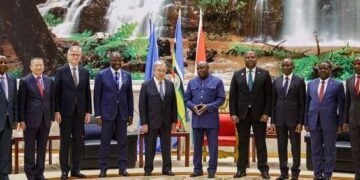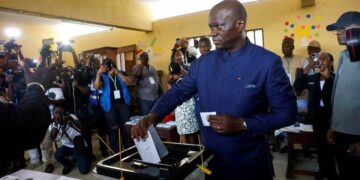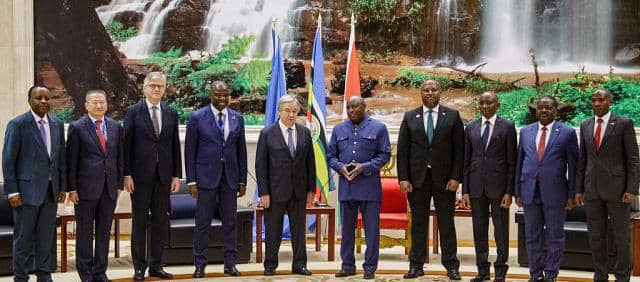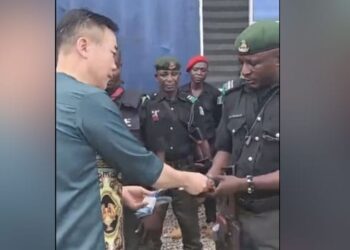By Enyichukwu Enemanna
UN Secretary-General Antonio Guterres, on Saturday appealed to leaders on the African continent to increase their efforts in bringing stability to Democratic Republic of Congo (DRC), where armed conflict has killed several thousands of persons with millions displaced.
“Despite our collective efforts, more than 100 armed groups — Congolese and foreign — still operate today and thus threaten the stability of the entire Great Lakes region,” Guterres said on Saturday while addressing a gathering African nations in Burundi, who signed an UN-brokered accord in 2013 to promote stability and security in the mineral-rich country grappling with perennial arm conflict.
He told presidents and heads of government in Bujumbura that the pact brokered a decade ago, marked a turning point for cooperation in the turbulent region, but “the current crisis underscores how far we have to go”.
He declared, “It is time for the violence to stop. I reiterate my call to all armed groups — lay down your arms, immediately.”
Guterres said “constant and sincere” dialogue was the only path to compromise and lasting peace for the volatile region.
“I, therefore, encourage the signatory countries… to redouble their efforts,” he said.
Armed groups have plagued much of eastern DRC for three decades, a legacy of regional wars that flared in the 1990s and 2000s.
One militia, the M23, has captured swathes of territory in North Kivu since taking up arms in late 2021 after years of dormancy.
Guterres said, the resurgence of M23 had displaced hundreds of thousands of people, and called on all parties to respect pledges made in Nairobi and Luanda last year to end that conflict.
An East African regional military force has taken over some areas previously occupied by the M23 since December.
The DRC accuses its smaller central African neighbour, Rwanda, of supporting the M23, an assessment backed by US and French officials as well as UN experts.
But Rwanda has repeatedly denied supporting the Tutsi-led rebels, who are still present in North Kivu and occasionally clash with rival militias.

































